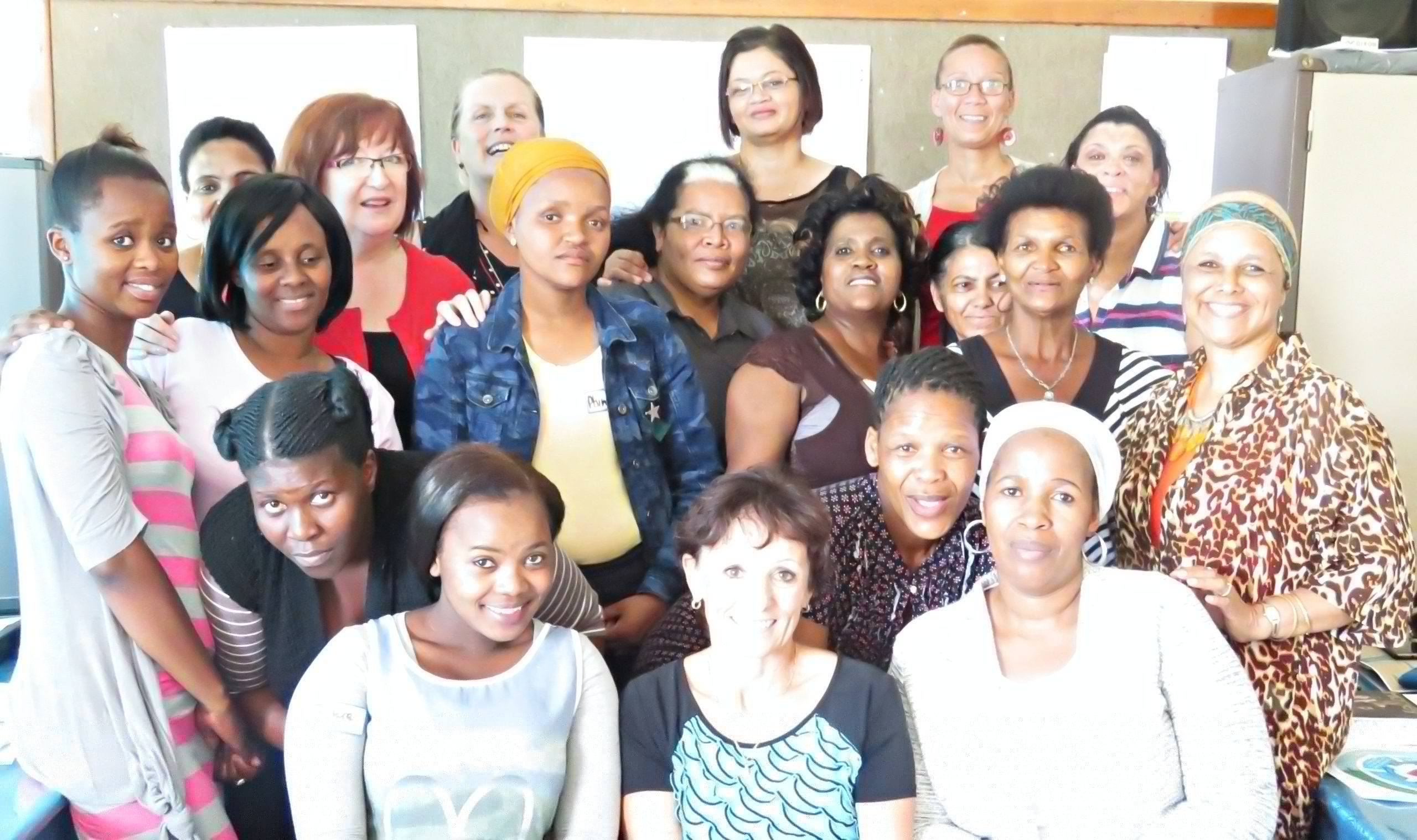School-community partnership Lesley Wood & Mary McAteer
 Despite the end of Apartheid in South Africa in 1990, and the formation of a democratic government in 1984, the legacy is still evident. Many black communities suffer socio-economic disadvantage, and often lack access to good-quality schooling. This project, funded by the British Academy Newton Fellowship and The National Research Foundation, was undertaken by Prof Lesley Wood and Dr Mary McAteer. Our aim was to work with Teaching Assistants (TA) in a peri-urban primary school in Eastern Cape, to find ways of helping parents support their children’s classroom learning. We were aware that there was a history of very limited success with externally designed interventions such as literacy development programmes.
Despite the end of Apartheid in South Africa in 1990, and the formation of a democratic government in 1984, the legacy is still evident. Many black communities suffer socio-economic disadvantage, and often lack access to good-quality schooling. This project, funded by the British Academy Newton Fellowship and The National Research Foundation, was undertaken by Prof Lesley Wood and Dr Mary McAteer. Our aim was to work with Teaching Assistants (TA) in a peri-urban primary school in Eastern Cape, to find ways of helping parents support their children’s classroom learning. We were aware that there was a history of very limited success with externally designed interventions such as literacy development programmes.
For this reason, as seasoned action researchers who knew and understood the context of the school, Drs. Lesley Wood and Mary McAteer elected to employ a Participatory Action Research (PAR) approach, working closely with the school’s TAs who although worked in the school, also (unlike the teaching staff) lived in the community and knew the reality of the life challenges many of the parents faced in trying to support their children. We were aware that their situated knowledge, along with their acceptance among their peers, would provide a strong foundation for working together in a way that honoured and valued the knowledge of both the community and the academic researchers. Trust building and strengths-recognition workshops helped us develop mutuality and reciprocity, with each acknowledging and valuing the knowledge of the other. The TAs, working as researchers in the community identified a number of key areas of need, and supported by the academics and the teaching staff in the school, developed a 6 unit programme, addressing social, as well as academic development for parents. They piloted and refined the programme, which was then rolled out to the first group of 10 community parents. They called the programme ‘Luniko’, an isiXhosa word meaning ‘giving and receiving’, and following the pilot, compiled all the materials into a bi-lingual manual.
True to the principles of PAR, the final evaluation of the project was completed collaboratively, and highlighted the changes in perceptions of TAs and teachers in relation to their own roles in supporting children. They also identified significant personal growth and technical skills development. Lesley and Mary recognise that the success of the project and its impact on participants was made possible by the collaborative, values-driven PAR practice.
Access the full paper at this forever link:
https://journals.sagepub.com/doi/full/10.1177/14767503211023133
- Three stories we did not tell about NGO-Community Collaboration in Uganda - April 18, 2024
- Podcast on PAR Peacebuilding in Colombia - April 15, 2024
- Julian Hauer’s Workshop– thinking wider and deeper - April 15, 2024
